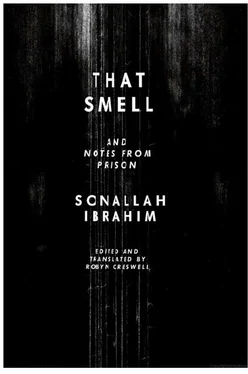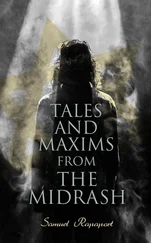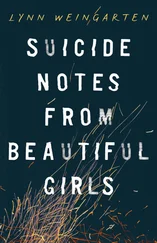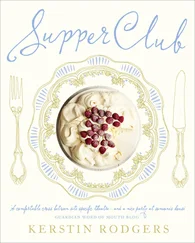Sonallah Ibrahim - That Smell and Notes From Prison
Здесь есть возможность читать онлайн «Sonallah Ibrahim - That Smell and Notes From Prison» весь текст электронной книги совершенно бесплатно (целиком полную версию без сокращений). В некоторых случаях можно слушать аудио, скачать через торрент в формате fb2 и присутствует краткое содержание. Год выпуска: 2013, Издательство: New Directions, Жанр: Современная проза, на английском языке. Описание произведения, (предисловие) а так же отзывы посетителей доступны на портале библиотеки ЛибКат.
- Название:That Smell and Notes From Prison
- Автор:
- Издательство:New Directions
- Жанр:
- Год:2013
- ISBN:нет данных
- Рейтинг книги:4 / 5. Голосов: 1
-
Избранное:Добавить в избранное
- Отзывы:
-
Ваша оценка:
- 80
- 1
- 2
- 3
- 4
- 5
That Smell and Notes From Prison: краткое содержание, описание и аннотация
Предлагаем к чтению аннотацию, описание, краткое содержание или предисловие (зависит от того, что написал сам автор книги «That Smell and Notes From Prison»). Если вы не нашли необходимую информацию о книге — напишите в комментариях, мы постараемся отыскать её.
Notes from Prison
That Smell and Notes From Prison — читать онлайн бесплатно полную книгу (весь текст) целиком
Ниже представлен текст книги, разбитый по страницам. Система сохранения места последней прочитанной страницы, позволяет с удобством читать онлайн бесплатно книгу «That Smell and Notes From Prison», без необходимости каждый раз заново искать на чём Вы остановились. Поставьте закладку, и сможете в любой момент перейти на страницу, на которой закончили чтение.
Интервал:
Закладка:
Is the real problem in art the problem of form? Can we say that the basis of art is form? This doesn’t mean we’re against content. Form without content is meaningless. (The content of abstract painting is found in the sensations experienced by the self when stimulated by a certain arrangement of colors.) The artist at work is not motivated, in the first place, by a strict idea, but rather by forms and styles. It is by virtue of his working through these forms and styles that the content emerges (the opposite might also occur). In backward societies, or one in which art enjoys a mass audience while it is still culturally backward (Russia at the time of the Revolution), a direct style is necessary and valid. When the cultural level is higher, when life has become more complex and intellectual development has progressed, the need for more depth — for new forms and styles, for an increasing variety and profundity of each art’s creative elements — becomes urgent. (In narrative: memory, experience, symbol, style, scientific awareness.)
If I wanted to describe a picture of my sister when she was young and innocent and wide-eyed and full of possibility — a picture of her wearing a pink skirt with a white spot marking the slight swell of her chest, a trace of sweat above her shoulders — can words succeed in describing her, in translating the feeling that digs into my chest? Film can do it better. So another way must be sought, beyond the snapshot, to capture this feeling in words.
August
The mood in the prison has become unbearable. Terrible noise. I can’t sleep at night or in the afternoon. I wish the prisoners were gone. I don’t know how to work; I’m constantly depressed and nothing changes my mood except reading a good story or something about the writer’s craft. I’m confident I know how to write, but what nearly destroys me is not knowing the level of writer I’ll become. Many thoughts run through my head, which I want to express but can’t. I don’t know how to express my thoughts clearly in speech. If I try to write them down, the thoughts run away.
When we express ourselves, we also express the collective. A fence gleaning.***** What is shared by these collectives: boredom, disgust, disillusionment. The romanticism of struggle is over. What remains are the utterly naked facts. The cult of personality and its collapse. Rethinking of everything. The masks are off (the mask of religion, the mask of heroism.).
Eye of the child: “Human nature seeks constantly to know the world around it, but the desire decreases over time. As we grow older the world loses its beauty and brilliance, but we can reclaim our acuity of vision, the sunrise of the world, by way of the child who observes the world around him with wide and curious eyes.”
September
September 2, afternoon: I dreamed of my father. He was walking and he put his arm around my shoulder and embraced me. He seemed strong, solid. He complained to me about the troubles and pains of last year. I told him that as for myself, I’d been in pain since turning eighteen. It made me happy to complain to him and expect some kind of relief. But he pointed to the crowded tram and said, smiling kindly, “They’re going to pick each other’s pockets,” and I realized he wanted to change the subject. Then he disappeared and Adel H. took his place.****** We walked next to each other with his arm on my shoulder and I began to complain to him, too. He sympathized, then left me when we reached a playing field. I was angry, because he had listened to me only so that I’d accompany him to the playing field, not because he was especially interested in what I was saying. I went away, after taking his towel in revenge. I woke up and felt happy about seeing my father. I recalled my feelings of delight, gladness, comfort at being able to complain to him and have his help. I thought, if only there were no science of dreams. How wonderful it would have been if this were a visit from my father’s spirit — a consolation, a prophecy!
Read an article, “The Dialectic of Nature.” Planets in motion, the earth cooling, establishing the conditions of life, the first cell, the vertebrates, mankind, mankind in its most advanced stage, the extinction of the earth (its cooling, its collapse into the sun), the persistence of matter in alternate forms in an infinite universe. Subject for a great novel.
Virginia Woolf’s To The Lighthouse has opened up a new world for me. Her idea of art seems to be the same as that given in her novel by the painter: “One wanted, she thought, dipping her brush deliberately, to be on a level with ordinary experience, to feel simply that’s a chair, that’s a table, and yet at the same time, It’s a miracle, it’s an ecstasy.” This is what Woolf does in the novel, handling everything that is simple, ordinary, quotidian. She writes by magic, elegantly and simply, without artifice: “But he did not ask them anything. He sat and looked at the island and he might be thinking, We perished, each alone, or he might be thinking, I have reached it. I have found it; but he said nothing.”
Anything that takes us beyond the limits of the conventional novel, now exhausted, is worth doing. I believe writing, the practice itself, will reveal the ingredients of experimentation, will be the incarnation of its content.
How shall I write? I don’t think I have to write about any given topic — that is, sit down to write it and find a suitable form. Not at all. My feelings are set in motion by an idea, an experience, a memory, a style, a form, and they demand release. In releasing them, they interact with my rational mind, which determines their form and content.
Depths of the sea: a book by William Beebe, A Half Mile Down — “At a depth of eighteen meters, red light vanishes. Yellow vanishes at one hundred. Two hundred and forty meters down, green and blue also vanish from the spectrum, giving way to a deep blackish blue. Between 520 and 580 meters, we were enclosed in utter blackness.” A battle in the deep dark waters between a whale. and a nine-meter squid. With its snaky, suckered tentacles it measures 15 meters. A strange world, where darkness reigns, unsafe, unchanging, ice-cold, almost without oxygen. But there is life. About the Japanese shrimp, Dr. Noginama says that the act of insemination occurs between midnight and eight in the morning on mild and calm summer nights, in fresh water: “The male pursues the female. gripping her as she tries to flee him. and tears off her outer shell. He then embraces the naked female and she takes his organ of reproduction, brutally and coarsely, inside her, then rips it off. so that he remains in a state of impotency until a new organ takes the place of the old.”
The rest of Yevtushenko’s article in L’Express :
— Prose is far less tractable than poetry. A novel can’t be written in a few days, nor read aloud to the public.
— Realism is the greatest ism of art. But realism, as I understand it, can assume hundreds if not thousands of different forms. Each work that moves the spirit of man, whether or not it represents houses, people, and trees, I take to be a work of realism.
— Once a tired woman worker came up to me and said, “Just write the truth, son, just the truth. Look for the truth in yourself and take it to the people. Look for the truth in the people and store it within yourself.”
November
Eliot’s “objective correlative”: he means an image through which the poet articulates his emotion, so that the image provokes a similar emotion in the reader. This emotion is not a feeling but rather the transformation of feeling into an image, for poetry is not an expression of feelings but rather an escape from them. It is the poet’s effort to transform his personal pains into something strange and fertile, something universal that accords with a general rather than selfish interest.
Читать дальшеИнтервал:
Закладка:
Похожие книги на «That Smell and Notes From Prison»
Представляем Вашему вниманию похожие книги на «That Smell and Notes From Prison» списком для выбора. Мы отобрали схожую по названию и смыслу литературу в надежде предоставить читателям больше вариантов отыскать новые, интересные, ещё непрочитанные произведения.
Обсуждение, отзывы о книге «That Smell and Notes From Prison» и просто собственные мнения читателей. Оставьте ваши комментарии, напишите, что Вы думаете о произведении, его смысле или главных героях. Укажите что конкретно понравилось, а что нет, и почему Вы так считаете.












